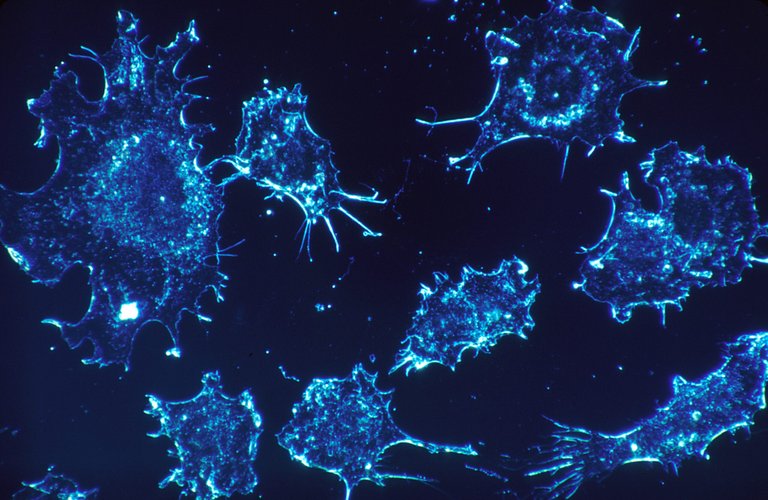While I cannot specifically say the age of my readers of which you are one of them if you are reading, but one thing I can say for sure is that your bones and cells have changed from the day you were born till date. While the bone in an infant keeps reducing as they fix together until they reach the numbers of bones for an adult, cells on the other hand lives, then die, and then are replaced by another cell.
Cells are to live, die, replicate, and be created but then some cells can receive signals or even mutate, leading to the cells not dying again. These cells then begin to replicate without being unable to undergo apoptosis (cell death). When they multiply to a certain level, they can begin to spread to other cells, tissues, organs and can even take over an entire system in the body. This is the origin of anything referred to as tumors and cancers.
It is good that we know that not all growth in the body is cancerous or malignant. Some cell growths are benign like fibroid that divides slowly and stay within their capsules while cancerous are very fast at dividing and spread to other regions. Cancer till date is still a torn in the flesh of scientists as finding cure for it is continuous and so cancer is very popular that there is a high chance that you watching this video know someone who has had cancer directly or indirectly. People then wonder what is cause of cancer? The simple answer is that we do not know the cause of cancer but there are several risk factors that can lead to a person having cancer.
One of the risk factors for cancer is Genetics since a person can inherit particular genes from their parents. Cancers such as colon cancer, and Ovarian Cancer can be passed down from parent to offspring through genetics. In other to know if a particular look genetics, medical practitioners go through family histories. It is good to know your family history as this can help to know if a person has a risk of developing cancer and be able to go for checkup so as to detect it early enough and treat it.
Another factor that people do not like hearing is smoking, especially smoking tobacco. Even with the warning signs boldly written on its pack, it is highly demanded by people and we need to understand that smoking tobacco tend to be a risk factor to almost every health issue in the body. Smoking is one of the leading cause of cancer and can be a risk factor for lung cancer, throat cancer, and mouth cancer to mention a few. There is a high chance that if you mention a type of cancer, there is a way that tobacco can be implicated because it contains carcinogens. Other carcinogens would include alcohol, processed meat, and UV rays.
The type of food you eat can increase the risk of being diagnosed of cancer especially cancers that have to do with the gastrointestinal tract including colorectal cancer and stomach cancer. Food that are highly processed can be a risk factor to these types of cancer. You would see that I am using the word "risk factor" because the cause of cancer has not been confirmed. Eating vegetables, white meat, whole grains and you know just that Mediterranean diet.
Radiation is another risk factor for cancer as cells can be damaged when exposed to excessive sunlight. Excessive exposure to radiations like UVA, UVB, radiations can lead to skin cell damage which can lead to skin cancer. Exposures to radiation like X-rays, Gamma rays, and Beta Rays can lead to a high risk of radiation. Not forgetting also that certain infections can also lead to cancer. Viruses such as HPV and Hepatitis can lead to cancer when not treated.
One risk factor that is unchangeable for now is age. As we grow older, so does our cells do same and also mutate. People within the age of 60 years and above are likely to be diagnosed with different types of cancers including breast cancers, lung cancer, and colorectal cancer.
Understanding the risk factors for cancer can help us take preventative measures. While genetics and age are beyond our control, lifestyle choices such as quitting smoking, eating a healthy diet, and protecting ourselves from excessive radiation can reduce our cancer risk. Regular check-ups and being aware of our family medical history are crucial for early detection and treatment. While cancer remains a significant challenge, ongoing research and a proactive approach to health can make a substantial difference in managing and preventing this disease.
Reference
https://www.who.int/health-topics/cancer
https://www.cancer.gov/about-cancer/understanding/what-is-cancer
https://www.who.int/news-room/fact-sheets/detail/cancer
https://www.cancer.gov/about-cancer/causes-prevention/risk
https://www.cdc.gov/cancer/risk-factors/index.html
https://www.msdmanuals.com/home/cancer/overview-of-cancer/risk-factors-for-cancer



